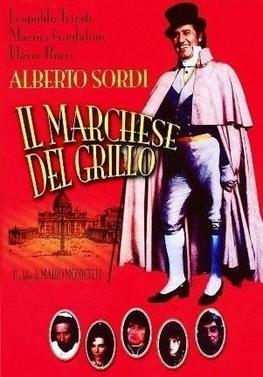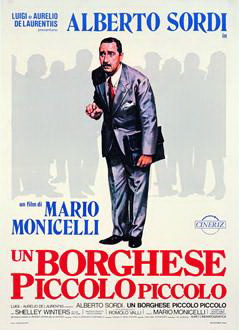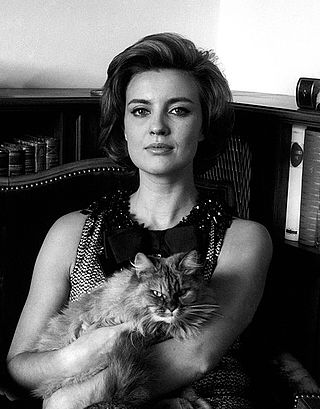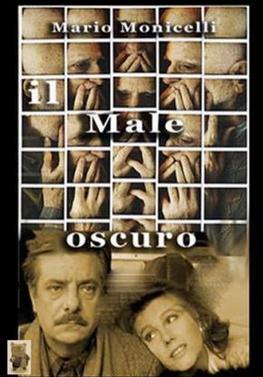
Mario Alberto Ettore Monicelli was an Italian film director and screenwriter, one of the masters of the commedia all'italiana. He was nominated six times for an Oscar, and received the Golden Lion for his career.

Michele Placido is an Italian actor, film director, and screenwriter. He began his career on stage, and first gained mainstream attention through a series of roles in films directed by the likes of Mario Monicelli and Marco Bellocchio, winning the Berlinale's Silver Bear for Best Actor for his performance in the 1979 film Ernesto. He is known internationally for portraying police inspector Corrado Cattani on the crime drama television series La piovra (1984–2001). Placido's directorial debut, Pummarò, was screened Un Certain Regard at the 1990 Cannes Film Festival. Three of his films have competed for the Golden Lion at the Venice Film Festival. He is a five-time Nastro d'Argento and four-time David di Donatello winner. In 2021, Placido was appointed President of the Teatro Comunale in Ferrara.

Stefania Sandrelli is an Italian actress, famous for her many roles in the commedia all'Italiana, starting from the 1960s. She was 14 years old when she starred in Divorce Italian Style as Angela, the cousin and love interest of Ferdinando, played by Marcello Mastroianni.

Margherita Buy is an Italian actress. She is a seven-time David di Donatello Awards winner and seven-time Nastro d'Argento winner.

Lyddie is a 1991 novel written by Katherine Paterson. Set in the 19th century, this is a story of determination and personal growth. When thirteen-year-old Lyddie and her younger brother are hired out as indentured servants to help pay off their family's debts, Lyddie is determined to find a way to reunite her family.

Il Marchese del Grillo is a 1981 Italian comedic motion picture directed by Mario Monicelli, starring Alberto Sordi as the title character. The film depicts early nineteenth-century episodes in the life of a nobleman in Rome. Loosely based on folkloric accounts of the real Onofrio del Grillo, this character plays a number of pranks, one even involving Pope Pius VII. The famous line Io sò io, e voi non siete un cazzo, is appropriated from Belli's 1831 sonnet, "The Sovrans of the Old World".

An Average Little Man is a 1977 Italian drama film directed by Mario Monicelli. It is based on the novel of the same name written by Vincenzo Cerami. The movie mixes "Italian-Style Comedy" with psychological drama tragedy. The film was an entrant in the 1977 Cannes Film Festival. In 2008, the film was included on the Italian Ministry of Cultural Heritage’s 100 Italian films to be saved, a list of 100 films that "have changed the collective memory of the country between 1942 and 1978."

Siamo tutti inquilini is a 1953 Italian comedy film directed by Mario Mattoli and starring Aldo Fabrizi.

Ilaria Occhini was an Italian stage, television and film actress. She appeared in more than 30 films.

Toto and the Women is a 1952 Italian film directed by Mario Monicelli and Steno.

Nasty Love is a 1995 Italian thriller film directed by Mario Martone. It was entered into the 1995 Cannes Film Festival. It is based on the novel of the same name, by Elena Ferrante. The film was shot mainly in Naples, Italy.

Elena Sofia Barucchieri, known by the stage name Elena Sofia Ricci, is an Italian actress. She is known, among other things, for playing Sister Angela in the Italian television series Che Dio ci aiuti.
Marina Confalone is an Italian actress, screenwriter, theatre director, writer, holder of five David di Donatello awards.

Il male oscuro is a 1990 Italian drama film directed by Mario Monicelli. It is based on the novel with the same name written by Giuseppe Berto. For this film Monicelli was awarded with a David di Donatello for Best Director.

Camera d'albergo is a 1981 Italian comedy film written and directed by Mario Monicelli. Ida Di Benedetto won the David di Donatello for Best Supporting Actress and Ruggero Mastroianni won the David di Donatello for Best Editing.

Rossini! Rossini! is a 1991 Italian biographical film written and directed by Mario Monicelli. It depicts real life events of composer Gioachino Rossini. Monicelli replaced Robert Altman, who was experiencing differences with the producers. The film won the David di Donatello for Best Costumes.

Parenti serpenti is a 1992 Italian black comedy film written and directed by Mario Monicelli. It won the Italian film critics Silver Ribbon for Best Costumes. Writer Carmine Amoroso, who conceived of the story for the film, later adapted the film into a stage play that ran in Italy and Spain.

Athina Cenci is a Greek-born Italian former actress, stand-up comedian and politician.
Giovanni Di Clemente was an Italian television and film producer.

Loro is a 2018 drama film directed by Paolo Sorrentino, starring Toni Servillo. The film talks about the group of businessmen and politicians – the Loro (Them) from the title – who live and act near to media tycoon and politician Silvio Berlusconi.

















